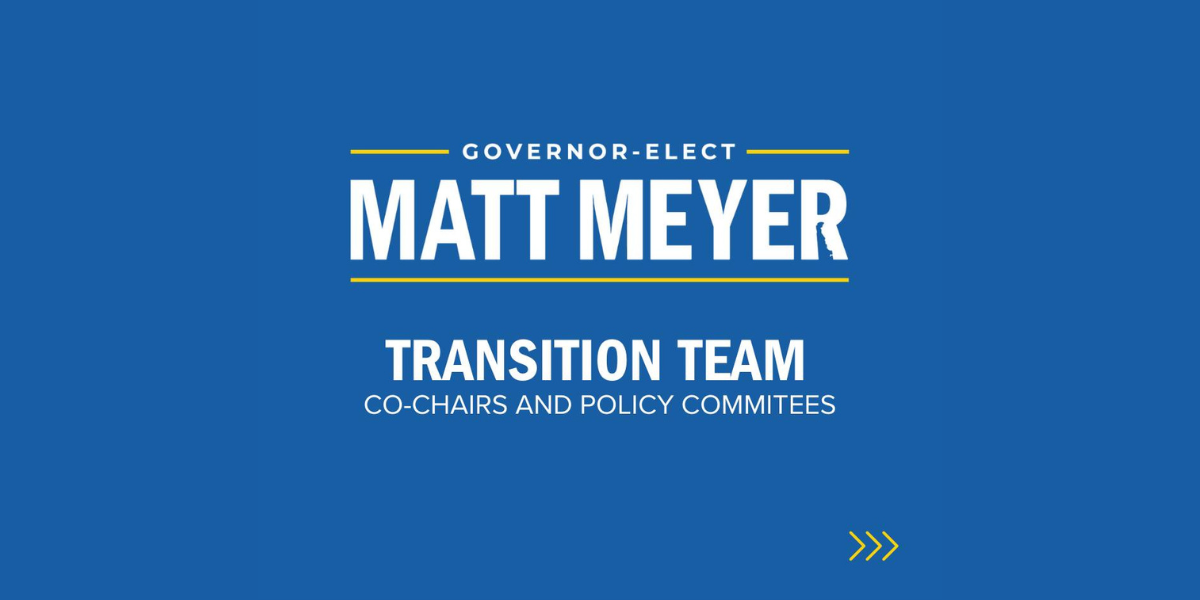DOVER – Both chambers of the Delaware General Assembly will reconvene on October 26 to consider legislation that would add several layers of additional oversight as the State transitions to a new healthcare plan for its Medicare-eligible retirees and their dependents.
“As pensioners who both receive healthcare benefits from our former employers, the Speaker and I are acutely aware of how much retirees and their spouses depend on the benefits they earned through their years of dedicated service,” said President Pro Tempore Dave Sokola, who retired from the DuPont Co. in 2015.
“While we are confident the new healthcare plan will continue to provide the same level of world-class healthcare to our State pensioners at no added cost to them or their families, we also understand how any change to those benefits is a cause for concern,” he said. “We owe our State retirees as much assurance and oversight as we can provide to ensure this transition fulfills the obligation we made to thousands of dedicated public servants.”
Under a plan recommended by the Retiree Benefit Study Committee (RBSC) and enacted by the State Employee Benefits Committee (SEBC), the State of Delaware will transition from a publicly managed Special Medicfill Supplement Plan to a Delaware-specific Medicare Advantage Plan administered by Highmark Blue Cross Blue Shield on Jan. 1, 2023.
The transition followed numerous public meetings on how best to grapple with the exceedingly high cost that funding retiree health care will place on Delaware taxpayers as record numbers of state workers reach retirement age. The latest analysis from the RBSC indicates Delaware faces a current shortfall of nearly $11 billion that would have reached $37 billion by 2050 if the plan were left unchanged. This year alone, the State is expected to allocate nearly $785 million to keep its retiree healthcare system solvent.
It became clear this summer that some State pensioners were unaware of the SEBC and the RBSC’s public meetings and did not have a clear understanding of the forthcoming changes.
Members of the General Assembly then held a series of public meetings throughout the state to solicit public input and provide details about the new Medicare Advantage plan. During those meetings, State retirees raised concerns about the pre-authorizations for some non-emergency services required by the new plan, as well as questions about provider participation.
While the General Assembly does not have the power to undo the Carney Administration’s contract with Highmark, legislators have since secured a number of concessions to address the concerns raised by State retirees, including:
- A four-month delay in the implementation of pre-authorization for outpatient services,
- Quarterly reporting on denial rates and other aspects of the pre-authorization process
- An expansion of out-of-network access
- Additional customer service staffing at Highmark and the Delaware Department of Human Resources
- A commitment to add a number of performance guarantees to the final contract.
“In September, our caucus organized two town halls providing the opportunity for state pensioners and administration officials to come together and have questions answered about the new Medicare Advantage plan,” said Senate Minority Whip Brian Pettyjohn. “One thing became very clear: Retirees need a seat at the table for this and future decisions regarding their health coverage. They dedicated their careers to serving Delawareans and we must do what we can to ensure their retirement healthcare is the best it can be.”
“After attending the public forum that was held last month in Sussex County on the impending Medicare coverage changes, it became even clearer the need for additional oversight and monitoring of the transition to this new healthcare plan,” said House Minority Leader Danny Short. “Our State retirees have dedicated their years of service to Delaware citizens and, with that, the state should fulfill its obligation to ensure their health benefits will remain top-notch. I look forward to addressing some of their major concerns through the enactment of this important measure.”
On Oct. 26, the General Assembly is expected to add further oversight to the transition process through the creation of a new SEBC subcommittee made up of State retirees, sitting legislators, union representatives, and other state officials, who will monitor Highmark’s performance during the three-year life of the current contract.
Senate Bill 348 also would create an ombudsperson in the Department of Human Resources who would focus specifically on assisting State pensioners with the transition and navigating the benefits under the Medicare Advantage plan.
“Many of our colleagues heard the concerns retirees raised during these public hearings. These teachers, secretaries, engineers, troopers, administrators, and other dedicated workers put in their service to the state and want to ensure that the state fulfills its commitment to them in their golden years,” said House Speaker Pete Schwartzkopf, who retired from the Delaware State Police in 2002. “We were able to win several concessions that will improve the current deal for retirees. And after several conversations and negotiations, we have crafted a bill that will add several layers of oversight to the process to protect the current agreement and assist retirees during this transition.”
SB 348 is expected to be filed in the coming days once input has been gathered from legislators and the public.
The Delaware Senate also will consider the confirmation of several Carney Administration nominees when it reconvenes on October 26.
###



